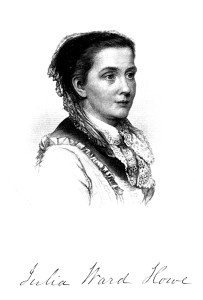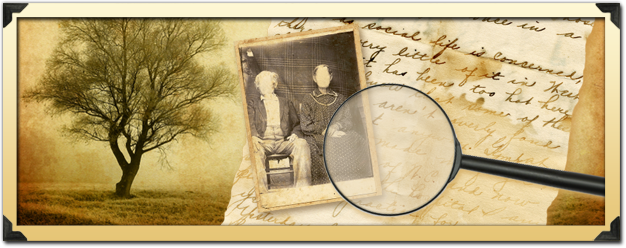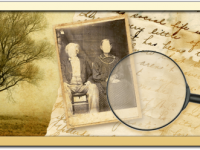February 1, 1862:
On this day in history, Julia Ward Howe’s “Battle Hymn of the Republic” was published in the Atlantic Monthly. It so happens that one of our clients is related to Julia. The family legend held that their Ward ancestry tied into the famous poetess and composer. Recent client research traced the client’s Ward lineage back to William Greene Ward, whose brother, Samuel Ward, became the father of Julia in 1819. Our research determined that the family legend was true!
When Julia was just 5 years old, her mother died of tuberculosis. Young Julia received a fin e education from private tutors, and in schools geared especially for young ladies. She filled her life with books and poetry, and also enjoyed the active social scene. She married and had six children, raising them in Boston. Julia attended lectures whenever possible, studied foreign languages, and wrote plays. Some of her
e education from private tutors, and in schools geared especially for young ladies. She filled her life with books and poetry, and also enjoyed the active social scene. She married and had six children, raising them in Boston. Julia attended lectures whenever possible, studied foreign languages, and wrote plays. Some of her
writings were published in local popular scholarly magazines. She eventually published books of poetry and plays.
Julia’s social sensibilities turned toward the abolitionist movement, and also women’s suffrage. She visited Washington, DC in November 1861 and met President Abraham Lincoln at the White House. After watching Union troops march into battle, the inspiration came to her for the poem that became lyrics to her most famous work, the “Battle Hymn of the Republic”.
Julia Ward Howe’s many accomplishments are too numerous to mention here. She became the first woman elected to the American Academy of Arts and Letters in 1908, at the age of 88. She was posthumously inducted to the Songwriters Hall of Fame in 1970. Many schools are named after her. She left an indelible stamp for the better on our culture and society.
On this day in history, Julia Ward Howe’s “Battle Hymn of the Republic” was published in the Atlantic Monthly. It so happens that one of our clients is related to Julia. The family legend held that their Ward ancestry tied into the famous poetess and composer. Recent client research traced the client’s Ward lineage back to William Greene Ward, whose brother, Samuel Ward, became the father of Julia in 1819. Our research determined that the family legend was true!
When Julia was just 5 years old, her mother died of tuberculosis. Young Julia received a fin
 e education from private tutors, and in schools geared especially for young ladies. She filled her life with books and poetry, and also enjoyed the active social scene. She married and had six children, raising them in Boston. Julia attended lectures whenever possible, studied foreign languages, and wrote plays. Some of her
e education from private tutors, and in schools geared especially for young ladies. She filled her life with books and poetry, and also enjoyed the active social scene. She married and had six children, raising them in Boston. Julia attended lectures whenever possible, studied foreign languages, and wrote plays. Some of herwritings were published in local popular scholarly magazines. She eventually published books of poetry and plays.
Julia’s social sensibilities turned toward the abolitionist movement, and also women’s suffrage. She visited Washington, DC in November 1861 and met President Abraham Lincoln at the White House. After watching Union troops march into battle, the inspiration came to her for the poem that became lyrics to her most famous work, the “Battle Hymn of the Republic”.
Julia Ward Howe’s many accomplishments are too numerous to mention here. She became the first woman elected to the American Academy of Arts and Letters in 1908, at the age of 88. She was posthumously inducted to the Songwriters Hall of Fame in 1970. Many schools are named after her. She left an indelible stamp for the better on our culture and society.




